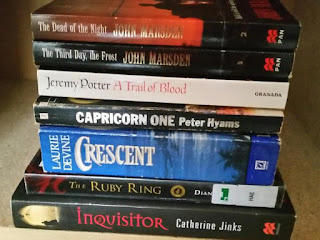Synopsis: On 06/06/06, the world’s population crossed 6.66 billion. Any further increase could only occur at the cost of other species and future generations.
This triggered the Devil’s Game. A Treasure Hunt for the twelve missing pages of the Devil’s Bible, which hold the Devil’s Prayer. A game designed for Jess Russo, the daughter of the Devil, to unleash Armageddon. Each page Jess finds encourages people to be selfish. To hoard for themselves and theirs, wiping out every chance future generations and all other species have of survival. Only her elder sister Siobhan can stop her, by finding the pages of the Devil’s Prayer hidden across the globe before Jess does.
When the bells of Amalfi Cathedral toll twelve repeatedly one night, Inspector Luca Reginalli races to find four ancient frescoes and a note in a jade sarcophagus. The cryptic note offering the Twelfth Page of the Devil’s Prayer in exchange for Siobhan goes viral. The treasure hunter Siobhan becomes the hunted.
From the Templars of Tomar to the Doomsday Chest in London, from the Tomb of Amir Temur to the Shadowless Pagoda of Wuhan, Siobhan and Reginalli follow the trail of carnage left by each page of the Devil’s Prayer.
Can they save the world from its own destruction?
Firstly please read The Devil's Prayer first and foremost as this is the sequel and makes numerous references to the first.
This is essentially the story of the survival - the survival of mankind, of the environment, of faith, of life on earth in all its form. And it preempted by a game - a battle of wits - between good and evil, light and dark, the emissaries of God and the Devil in the form of two sisters (Siobhan and Jess) and the respective mysterious religious factions that support them in their quest.
 |
| Codex Gigas |
Their quest: find the twelve missing pages of the Devil's Bible - the Codex Gigas - that make up the Devils Prayer which will either save or destroy mankind, depending on who is holding the majority of the pages. The sisters' quest will take them from their hometown in Australia throughout Europe and Asia ... the path to the pages of the Devil's Prayer was littered by a trail of dead bodies ... such was the determination of each faction to take possession.
There is an abundance of research that went into the narrative, which I always appreciate when historical and religious overtones merge and meld with modern fiction. It will provoke thought and discussion and argument but ultimately the message is quite clear - the earth is the only thing we all have in common.






